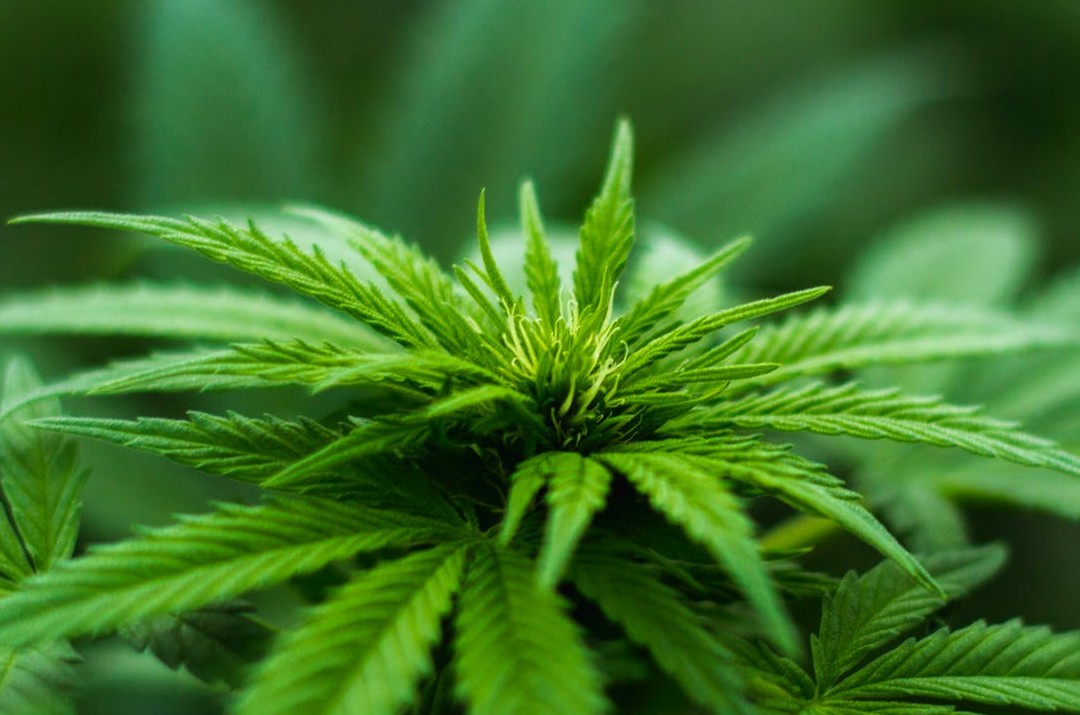Cannabidiol (CBD) is a hot commodity right now, with CBD manufacturers and distributors popping up all over the U.S. When did the benefits of this cannabis-derived compound start coming to light? While CBD was certainly not entirely unknown in the past, its modern-day resurgence can be attributed to a young girl named Charlotte Figi.
Who Was Charlotte Figi?
At 3 months old, Charlotte Figi was diagnosed with a rare form of epilepsy known as Dravet syndrome. The condition brings about debilitating and frequent seizures, which for Charlotte, totaled hundreds a day. In a week, Charlotte would experience more than 300 seizures, meaning she was having one approximately every 30 minutes. Anti-epileptic pharmaceutical drugs typically prescribed to treat Dravet syndrome weren’t helping Charlotte at all.

Charlotte’s mother, Paige, began to research alternative therapies to help her daughter. She read that CBD oil helped lessen the severity of seizures in a child who lived in California. At her wits end and having exhausted every pharmaceutical, as well as holistic treatment option, Paige contacted Joel Stanley, who owned a medical marijuana dispensary with his six brothers in Colorado Springs.
Upon administering CBD oil to Charlotte, Paige noticed her daughter’s seizures began to decrease. So much so, that Paige weaned Charlotte off her anti-seizure medication. Eventually, Charlotte was able to walk and talk, and she no longer needed a feeding tube. Her family believes CBD deserves all the credit.
Charlotte’s story was so powerful, the Stanley brothers named their CBD company after her. Thus, Charlotte’s Web™ was born.
Paving the Way for a New Industry
Charlotte’s Web was founded by the Stanley brothers in 2012 after breeding the specific strain of cannabis that positively affected Charlotte’s seizure disorder. Now, Charlotte’s Web is an extremely popular line of products that are high in CBD and available to the masses.
The Stanley brothers along with the Figi family founded a nonprofit together in 2013 called the Realm of Caring Foundation. Like the FDA’s ongoing efforts, the Realm of Caring Foundation has aimed to dispel any myths surrounding CBD. Their work to support data collection, research, development, and education on CBD’s capabilities was one of the first steps in a collaborative effort to legalize CBD.
While CBD was legal in Colorado, it was not legal nationwide. There were two pieces of legislation that allowed the CBD industry to take off and become the movement it is today, which can be in part, traced to Charlotte.
 The first one started with Charlotte Figi’s mother’s non-profit organization, Coalition for Access Now. They initiated the petition to pass the Charlotte’s Web Medical Access Act of 2015, which attempted to remove CBD as a controlled substance as long as it contained less than 0.3 % THC, the psychoactive component of the cannabis plant. But it wasn’t until 2018, when the Farm Bill passed, that led to the federal legalization of growing industrial hemp containing 0.3% or less THC and harvesting, selling, and transporting products made with its derivatives – namely cannabidiol (CBD).
The first one started with Charlotte Figi’s mother’s non-profit organization, Coalition for Access Now. They initiated the petition to pass the Charlotte’s Web Medical Access Act of 2015, which attempted to remove CBD as a controlled substance as long as it contained less than 0.3 % THC, the psychoactive component of the cannabis plant. But it wasn’t until 2018, when the Farm Bill passed, that led to the federal legalization of growing industrial hemp containing 0.3% or less THC and harvesting, selling, and transporting products made with its derivatives – namely cannabidiol (CBD).
Soon after the 2018 Farm Bill passed, CBD began to appear in a multitude of forms, including ingestible gummies, tinctures, and capsules. Companies like CBD CLINIC™ were able to enter the market and establish themselves as a leading CBD topical product company, and the number of manufacturers and distributors climbed immensely
CBD sales reached $5 billion in 2019 and are expected to reach over $20 billion by 2024. This exponential market growth can be attributed back to the Charlotte Figi and her tenacious fight against Dravet syndrome—as well as her family’s ongoing medical cannabis activism.
To learn more about boosting your business with CBD,
download your FREE E-Book
FDA Approves the First CBD-Based Drug, Epidiolex
Due to Charlotte’s story and the recognition CBD began to receive, clinical studies and research were essential to determine benefits and safety precautions. In 2018, the first prescription drug treatment utilizing CBD as an active ingredient was approved by the Food and Drug Administration (FDA). This medication, called Epidiolex, was classified as a Schedule V substance, the lowest possible designation given by the United States’ Drug Enforcement Administration (DEA).
Epidiolex is prescribed to help treat those with Dravet syndrome, as well as another epileptic condition, Lennox-Gastaut syndrome (LGS). Children as young as 2 can take the drug, and it is the first of its kind, reducing seizures in patients who received no relief from a multitude of pharmaceutical treatments.
Epidiolex is good news for the world of CBD. It shows the abundance of research that is going into CBD for medicinal purposes, and also has the FDA paying attention to the potential benefits of this plant compound.
While Epidiolex is a CBD-based drug, it is imperative to understand that it is ONLY approved to treat these two specific forms of epilepsy. It does not translate to CBD being a cure for seizure disorders, which is something many CBD companies will inaccurately claim.
Currently, the CBD market is a largely unregulated one, with some manufacturers and retailers making false, unfounded claims about the efficacy of CBD without any concrete proof to back up those claims. The FDA is working to rectify this by gathering data, which means more clinical trials, which means more concrete data as to what exactly CBD can and cannot do. Find out more about the FDA’s evaluation of CBD by reading about CBD drug interactions.
The Face of the CBD Industry
Because of the Stanley brothers’ CBD oil, Charlotte Figi’s parents believe she was able to live a happier, healthier life, and one that far exceeded expectations. Her life expectancy was 8 years. When she passed away, Charlotte was 13.
Her journey became well-known and Charlotte became the face of the budding CBD industry. In fact, Dr. Sanjay Gupta, an American neurosurgeon and medical correspondent gave Charlotte global notoriety when he featured her story in his 2013 documentary on CNN, Weed. She quickly became the poster child for the CBD movement.
Unfortunately, Charlotte’s seizures returned in March of this year as the result of a virus, which developed into pneumonia. The combination of her illness and her condition sadly led to her death on April 7, 2020, but her legacy lives on.
Social media posts and articles celebrating her short, but impactful life have been pouring out. Dr. Sanjay Gupta posted on twitter,
I lay awake last night thinking about how to best remember Charlotte Figi. And how to thank her mom, Paige, for sharing her with the world. Paige, you’re an amazing mom and gave sweet Charlie such a good life. In her short time, she changed the world.https://t.co/cxLG6LqUIp pic.twitter.com/IBvGTsAWMK
— Dr. Sanjay Gupta (@drsanjaygupta) April 9, 2020
The Stanley brothers commemorated Charlotte, saying, “She was a light that lit the world. She was a little girl who carries us all on her small shoulders.” They went on to say that Charlotte’s story, “became the shared story of hundreds of thousands, and the inspiration of many millions more in the journey of their own betterment.”
Their non-profit organization wth Figi’s mother, Realm of Caring, also offers its condolences on twitter as it celebrates her impact on the cannabis industry.
It is with a heavy heart that we write to let you know that Charlotte Figi passed away yesterday. Charlotte’s story directly impacted thousands of families across the globe and has changed the face of cannabis in many ways. 💚 #iamcharlotte
Photo Credit: @nicholeaudrey2 pic.twitter.com/0dEgtdkAQp
— realmofcaring (@realmofcaring) April 8, 2020
Charlotte Leaves Behind a Legacy
While the origins of cannabis and CBD can be traced back to thousands of years ago, Charlotte Figi’s story brought CBD into the modern age and continues to propel the industry forward. The insurmountable research going into discovering the benefits of CBD is ongoing and will continue to evolve into the future.
Do you have a CBD CLINIC story that you’d like to share? Join the CBD CLINIC professional’s community and share how our products have impacted your clients’ or patients’ lives with professionals like yourself.
Disclaimer: This information is for educational purposes only. It has not been approved by the FDA to diagnose, treat, prevent, cure, or mitigate any diseases or conditions. We use CBD in our products for cosmetic purposes only.



